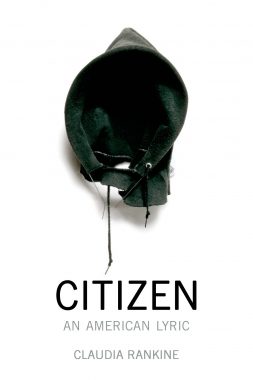Dr. Samuel Hazo was born in 1928 and has had a lifetime of literary success publishing poetry, plays, fiction and essays. He is also the founder and director of the International Poetry Forum in Pittsburgh, Pennsylvania. In Sexes: The Marriage Dialogues, Hazo’s poems are enjoyable because of how he humorously shows couples interacting in daily and challenging situations. He creates a relationship between readers and the poem’s speakers that can be appreciated by anyone who has ever experienced a relationship. Unique wisdom is required to ingest and mold the poems that make Sexes potent. Readers will recognize sensuality through, “One time/ you said your body’s never yours/until it’s with my body” (12) and even chuckle at “He denied whatever/she denied whenever she denied/whatever he denied” (32). The opposite of maybe is, “Hell no or let’s go,/depending on my mood” (12). Here, the demonstration of a strong characteristic is still mixed with humor.
It is in this book where aspects of communication with a spouse are examined including conversations about politics, past lovers, parting from one another in “Every Weekend the Willises Go Away,” and male dysfunction. A poem involving table setting reads,
“Frenchmen say that dining actuates our five senses all at once, and nothing else does.”
“Lovemaking comes close.” “I knew you’d mention that,
but even lovers need the right setting, or all you have
is ‘Wham, Bam, Thank you, Ma’am’ ” (7).
These stanzas illustrate how a couple is playfully talking in a casual setting without criticizing their spouse. Another situation similar to this in Sexes is the complexity of husband and wife cleaning out an attic together. After disagreeing about discarding the husband’s boots, the couple banters in two stanzas about the wife not wanting to throw away old dresses. She says,
“Well, I’m keeping every one of these if they’re thirty years old or not.”
“But you’re not what you were when you bought them!”
“Yes I am!” (23)
An act as casual as cleaning a house helps readers possibly relate through the couple’s disagreement and well-intended responses. The husband still does not dismiss his wife’s feelings.
The awareness of being over dramatic, birthing together, reunions, aging, and funerals are also explored, all with an undertone of love. In “The Thrower and the Keeper,” readers have an opportunity to digest, “It’s best when casual—a quick I love you while the coffee cools or when we pass each other in the hall. Skywriting lovers who proclaim I love you to the world mistake publicity for praise.”
The quality of gentle sarcasm adds to the humor that is apparent in Hazo’s poem, “Simon Says”:
“You know,” he said, “in heels you walk like a pair of scissors pointed down—closing
and opening.”
“High heels flatter a woman’s legs,” she said,
“and that’s enough.”
The nude bathers of Renoir look swell without high heels.”
The remarks between the spouses combine an old reference entwined with a fashion statement, which returns readers to the cover of the book. The book’s front cover image reinforces how it is possible for people to enjoy Sexes regardless of how long they have been with their spouse. Renaissance figures are shown on a modern bed with white, crinkled sheets. This could represent the span of young love and a lifetime together.
Hazo’s poems challenge readers to consider worry as a form of love and present a question of sex and love without the other. His poems evoke the idea of being right versus certain, and when to start trusting someone. Instead of defining myths of women’s and men’s roles in dating, these poems share honest reactions between the sexes through daily tasks that make a life together meaningful. The poems’ formats assist readers in a paced and, at moments, swift reading. Hazo’s work also mentions poets John Donne and George Byron.
Sexes also suggests how important human qualities can be learned over a chess game. The poems range from how sex scenes in modern movies abort imagination, to how a woman is still a woman after becoming a mother. While many factors divide the human race, Hazo graciously creates eighty binded pages to unite readers. Through the sensation of understanding and pathos, Hazo shows lovers who retaliate without abandoning patience and honesty for some form of love that we all crave.
 Shauna-Maria Andolina is graduating in May, 2015 with her MFA in Creative Writing from Arcadia University. She earned a B.S degree from The Pennsylvania State University. Besides coaching, she creates videos of signing songs in American Sign Language, and makes a mean homemade cheesecake.
Shauna-Maria Andolina is graduating in May, 2015 with her MFA in Creative Writing from Arcadia University. She earned a B.S degree from The Pennsylvania State University. Besides coaching, she creates videos of signing songs in American Sign Language, and makes a mean homemade cheesecake.




